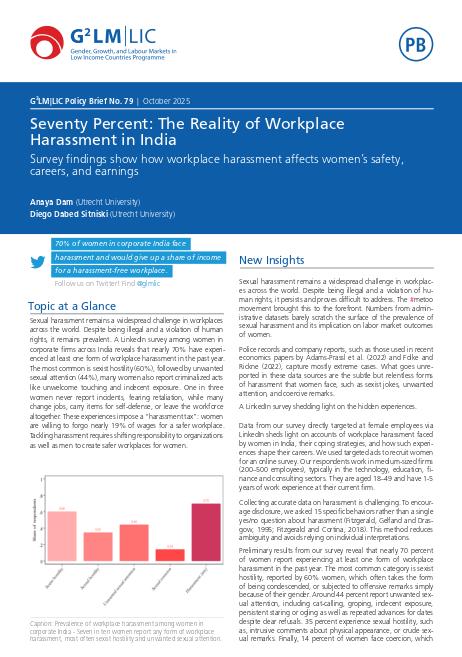Sexual harassment remains a widespread challenge in workplaces across the world. Despite being illegal and a violation of human rights, it remains prevalent. A LinkedIn survey among women in corporate firms across India reveals that nearly 70% have experienced at least one form of workplace harassment in the past year. The most common is sexist hostility (60%), followed by unwanted sexual attention (44%), many women also report criminalized acts like unwelcome touching and indecent exposure. One in three women never report incidents, fearing retaliation, while many change jobs, carry items for self-defense, or leave the workforce altogether. These experiences impose a “harassment tax”: women are willing to forgo nearly 19% of wages for a safer workplace. Tackling harassment requires shifting responsibility to organizations as well as men to create safer workplaces for women.
